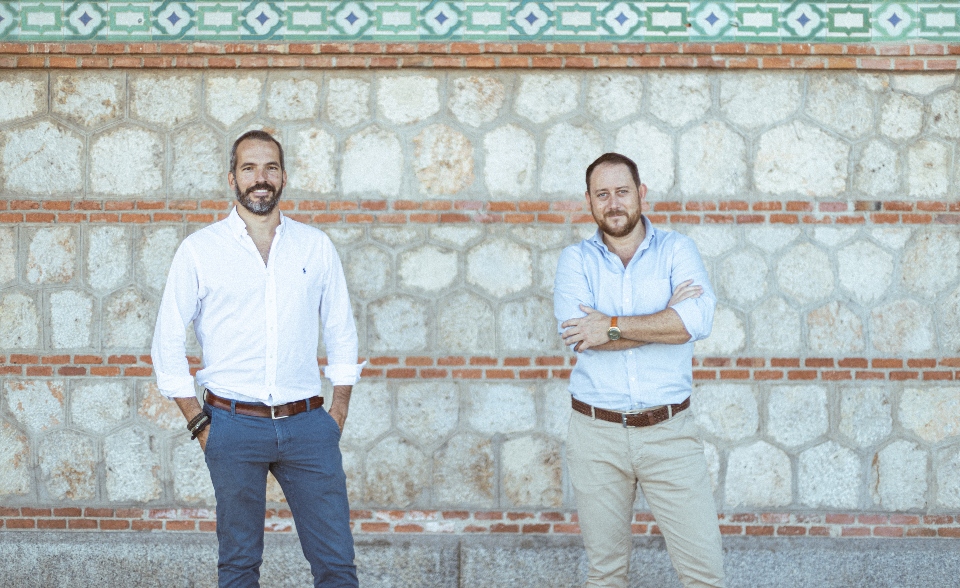With more than 400 confirmed attendees, the “great Ibero-American audiovisual event” promises to exceed expectations. ttvOriginals spoke with Samuel Castro and Rafael Sánchez to understand why the event stands as a mandatory date for an industry that’s eager to meet again.
Next Monday, September 27, Madrid will open its doors to welcome over 400 people looking to meet, share ideas, finance projects, do business and think about the future of the Ibero-American audiovisual industry.
With the ambition to become the great event for cinema and series in Spanish and Portuguese, Iberseries Platino Industria (IPI) was born with high and well-founded ambitions.
“The numbers of confirmed participants demonstrate the interest from the sector, and also show that we have been able to fill a void that existed and that was necessary,” says Samuel Castro, co-director of the event together with Juan Alía, in a dialogue with ttvOriginals.

Juan Alía and Samuel Castro, co-directors of IPI
Precisely, filling that gap was an objective shared by Grupo Secuoya and Egeda, two entities with a long business relationship and strong presence in Latin America, and responsible for this new event. They both had similar launch plans for 2020: the first, Iberseries; the second, the Platino Industria forum.
The pandemic altered those plans. “And we were both aware that, in a difficult year such as 2021, if we wanted to keep the flame of a first series festival alive, such as Iberseries, and the birth of Platino Industria, which is the professional derivative of the Platinum Awards, if we joined forces we had a greater chance of doing so,” says Castro.
For Rafael Sánchez, from Egeda and current director of Institutional Relations and Communication at Platino Industria y Premios Platino, having goals in common with Secuoya was key, especially in two aspects: the ability of many countries to unite around a project and the professionalization of the meeting.
“Egeda’s vocation is to promote the Ibero-American audiovisual industry, its talent and its stories”, summarizes Sánchez. Thus, to a new brand like Iberseries, the alliance with Egeda added the great visibility offered by the Platino Awards, and also all the cinematographic part that they have been defending, showcasing and promoting for so many years.
And was 2021 the year to launch? Samuel Castro is convinced that it is. “Despite all the difficulties, the Ibero-American audiovisual industry has not stopped. And the sector demands a space of its own in which Spanish and Portuguese-speaking creators, producers and talent can define, structure and design the content strategies of the future.
5 key aspects
IPI seeks to position itself as a meeting point for an industry which seems to have more than enough markets, fairs and festivals. However, everything suggests that an event of these characteristics makes sense. Why? Castro and Sánchez list the aspects that make it unique.
1. Ibero-American identity
IPI was born with its own identity around the concept of the Ibero-American union. “That makes it especially different from other global, international or local markets,” says Sánchez.
2. Movies and series in one place
TV production companies making films, cinematographic talents working on series: there are fewer and fewer barriers between these two worlds. “As we define it in our pitch, IPI was born as the great audiovisual event in Ibero-America. I like to say that two production models, film and TV, share space in the same event, and that is undoubtedly something new,” says Castro.
3. Exhibition open to the public
One of the fundamental vectors of the event are screenings – both of the first episodes of new series or of new seasons, as well as of films nominated for the Platinum Awards – open to the general public. “In many events there are screenings for the accredited, but we bet strongly on including the general public as well”, they explain.
4. Ibero-American co-production
International co-production opportunities will be at the core of the IPI program. “This is not strictly new, but it is more necessary than ever, and more between Latin American countries. This is something that is already established in cinema, but that in serial content is beginning to consolidate as a financing model.”
5. Investment funds within reach
IPI announced that one-to-one meetings may be requested with large private financial funds for audiovisual content from the US, Chile, Mexico, the Dominican Republic, France and Spain. “The great novelty is not the presence of these funds, but that the creators and producers will be able to present their projects directly to them. We are the first to do it,” says Castro.
Opportunities for everyone
Although the speakers of the more than 40 panels confirmed in the IPI program are high-level executives from both the cinematographic area, as well as Latin American platforms and broadcasters, “the message of opportunity is intended for producers, creators and professionals in the audiovisual community”.
That is why IPI was born as an event open to all Ibero-American audiovisual professionals.
“We have been ambitious enough to design a professional area where we cover the entire business related to audiovisual production and distribution: from the recruitment of Latin American talent for the US, to the great time it is for studios, to the new ad hoc pitchings, to the training of showrunners, financing… All segments will be represented, with opportunities generated in every area,” affirms Castro.
Thus, the organization is doing everything it can, such as lowering costs, facilitating transfers and creating a virtual spaces where those who are not in a position to travel can share the experience.
First in Madrid, and then?
When talking about the future, Castro and Sánchez are dreamers and realists in equal measure.
“We are delighted and very comfortable with the work we are doing with Egeda and Platino Industria, whatever goes ahead,” says the director of IPI. “But we have our feet on the ground, therefore, first we need to have a successful edition.”
Regarding the possibility of IPI traveling to other Latin American territories, as the Platino Awards have done (its headquarters were Panama City, Marbella, Punta del Este, Madrid and Playa del Carmen), both executives said they’re open to the idea.
“The location of the professional event is not limited to a specific territory. If it has emerged in Spain at this time, it is because it is where we have obtained the public funding that made it possible to carry it out since, like any other festival, IPI has an important component of public funding,” says Castro.
Thus, if in future editions there is a decided commitment from another country or region to host this event, which shares the objectives, of course they will. “This does not belong to any particular territory, it belongs to all of us,” he says.
Sánchez adds that it is “logical” for such a project to “travel through all Ibero-American countries,” or in those where the circumstances arise. “It is an event with an international vocation, and it is logical to consider its presence wherever the right place is every year. I think the event itself will require it,” he concludes.
To enjoy the exclusive face-to-face programming of PRO Activities, professional accreditation can be done here.








